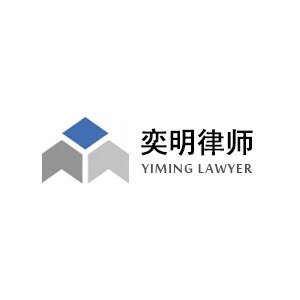Best Discrimination Lawyers in Beijing
Share your needs with us, get contacted by law firms.
Free. Takes 2 min.
List of the best lawyers in Beijing, China
About Discrimination Law in Beijing, China
Discrimination law in Beijing, China is part of the broader Chinese legal framework that aims to protect individuals from unfair treatment based on specific characteristics. China's legal system prohibits discrimination on several grounds, including ethnicity, gender, disability, and religion, albeit with varying degrees of enforcement. In a cosmopolitan city such as Beijing, understanding the nuances of discrimination law is important, given its diverse population and the presence of international businesses.
Why You May Need a Lawyer
Individuals may require legal help in cases of Discrimination for various reasons. If you are experiencing unfair treatment in the workplace, such as being denied promotions or being subjected to harassment due to your gender, race, or any other protected attribute, a lawyer can guide you through the process of filing a claim. Additionally, if you're facing discrimination in public areas, housing, education, or when accessing government services, legal representation can help safeguard your rights.
Local Laws Overview
Beijing, as part of China, is governed by national anti-discrimination laws. The Constitution of the People's Republic of China provides for equality before the law and prohibits discrimination based on nationality, race, gender, or religion. The Employment Promotion Law of China also bars employment discrimination, focusing on issues like gender equality and the rights of disabled individuals. However, the practical application of these laws may be limited and enforcement can be inconsistent. Local regulations may also be in place to address issues within the municipality of Beijing specifically.
Frequently Asked Questions
What constitutes discrimination in the workplace in Beijing?
Discrimination in the workplace can include any adverse treatment based on an individual's protected characteristics, such as refusal to hire, unequal pay, lack of accommodation for disabled employees, or creating a hostile work environment.
Can I file a discrimination complaint without a lawyer?
While it's possible to file a complaint on your own, navigating the legal requirements and advocating effectively without experience can be challenging. A lawyer can provide expertise and improve the chances of a successful resolution.
Are there any anti-discrimination laws specific to Beijing?
Most anti-discrimination laws are national; however, there can be local policies that supplement national laws, focusing on promoting equality and providing guidance for addressing discrimination within Beijing.
What should I do if I face discrimination in a public place or from the government in Beijing?
If you encounter discrimination from public services or in a public venue, documenting the incident and seeking legal advice would be the initial steps. A lawyer can help you understand whether you have a viable complaint and the process for addressing it.
Is discrimination based on sexual orientation or gender identity prohibited in Beijing?
China's national laws do not explicitly protect against discrimination based on sexual orientation or gender identity. However, societal awareness is growing, and some local level efforts might reflect a greater recognition of LGBTQ+ rights.
What are the deadlines for filing a discrimination claim in Beijing?
Deadlines can vary based on the specifics of each case. Therefore, consulting with a lawyer promptly to ascertain the timeframe for your claim is crucial.
How are discrimination cases investigated in Beijing?
Discrimination cases may involve internal investigations by employers, administrative reviews, or legal proceedings. The extent and nature of the investigation depend on the specifics of each case.
Can a foreigner file a discrimination claim in Beijing?
Yes, foreigners have rights under Chinese law and can file discrimination claims. However, there may be additional complexities for foreigners, making legal advice even more critical.
What compensations are available for victims of discrimination?
Compensation can include things like back pay, reinstatement of employment, damages for emotional distress, and other forms of relief deemed appropriate for the situation.
How can I prove discrimination occurred?
Proof of discrimination can involve gathering direct evidence like testimonies or indirect evidence such as statistical disparities. Legal experts can help in collecting and presenting persuasive evidence.
Additional Resources
For those seeking further information on discrimination in Beijing, organizations such as the local labor bureau or the China Labour Bulletin may offer additional resources. There are also international NGOs and legal assistance groups that work on discrimination issues in China, which can sometimes provide support or advice.
Next Steps
If you need legal assistance with discrimination issues in Beijing, the first step would be to gather any evidence related to your claim. Next, consider consulting with legal professionals who specialize in discrimination law, ideally those with experience in the relevant area, whether it's employment, housing, or public services. To find legal representation, you may reach out to the Beijing Lawyers Association, which can provide referrals to qualified lawyers.
Lawzana helps you find the best lawyers and law firms in Beijing through a curated and pre-screened list of qualified legal professionals. Our platform offers rankings and detailed profiles of attorneys and law firms, allowing you to compare based on practice areas, including Discrimination, experience, and client feedback.
Each profile includes a description of the firm's areas of practice, client reviews, team members and partners, year of establishment, spoken languages, office locations, contact information, social media presence, and any published articles or resources. Most firms on our platform speak English and are experienced in both local and international legal matters.
Get a quote from top-rated law firms in Beijing, China — quickly, securely, and without unnecessary hassle.
Disclaimer:
The information provided on this page is for general informational purposes only and does not constitute legal advice. While we strive to ensure the accuracy and relevance of the content, legal information may change over time, and interpretations of the law can vary. You should always consult with a qualified legal professional for advice specific to your situation.
We disclaim all liability for actions taken or not taken based on the content of this page. If you believe any information is incorrect or outdated, please contact us, and we will review and update it where appropriate.









